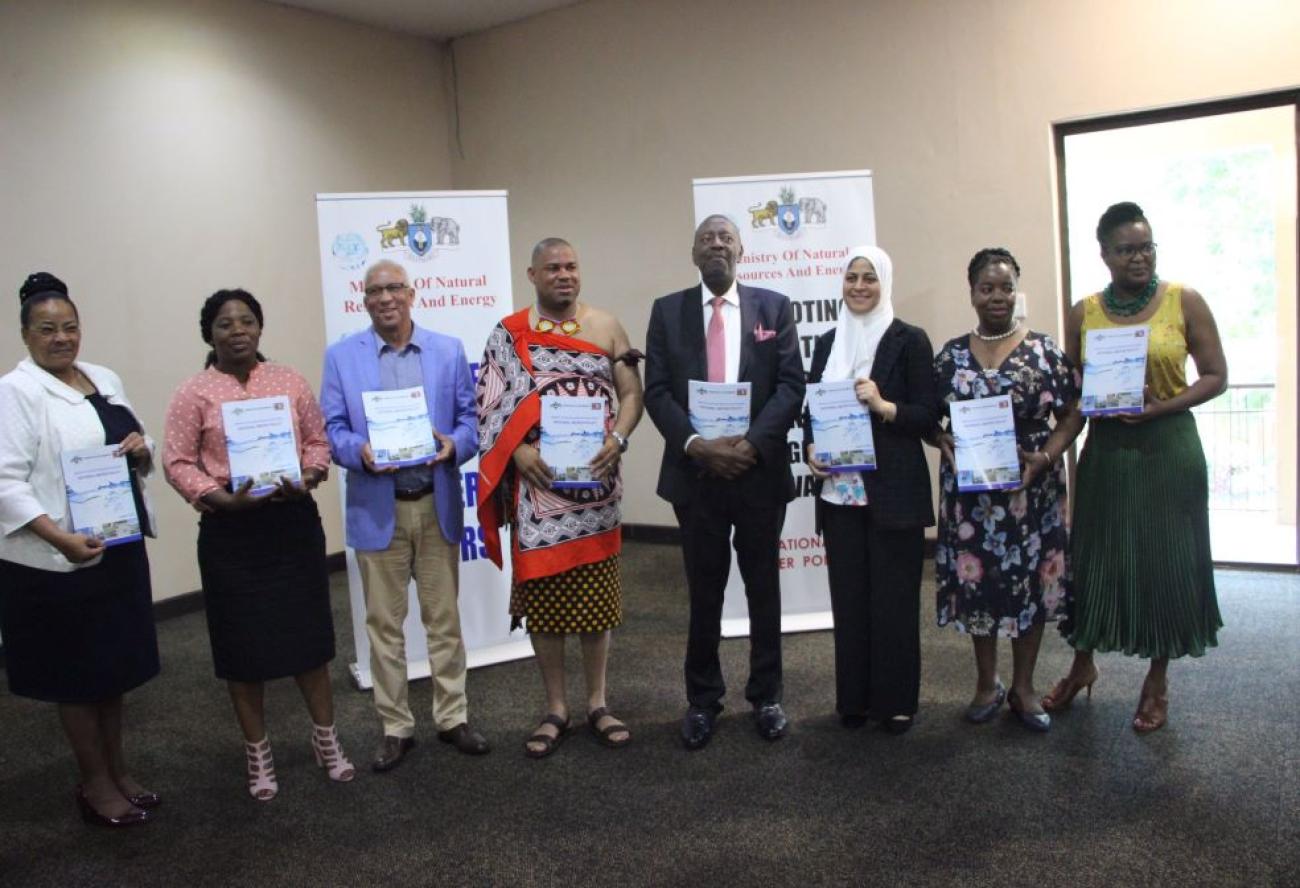The Minister of Natural Resources and Energy, Hon. Peter Bhembe, has launched the Eswatini National Water Policy.
The Minister of Natural Resources and Energy, Hon. Peter Bhembe, has launched the Eswatini National Water Policy which seeks to promote efficient and sustainable use of water resources.
The policy, developed through a consultative process and supported by the United Nations Development Programme (UNDP), recognises that although a finite resource, water is essentially an “economic good” that requires strict policy adherence and monitoring.
The policy will introduce water reforms to promote the development and review of compliance frameworks that encourage the proper use of water in Eswatini. “It is worth noting that the Policy is coming up with new approaches in the development and management of our water resources,” noted the Minister.
Lessons from the recent impacts of the El Nino-induced drought in 2015 and 2016 and climate change increase the country’s risks on economic performance and food security endorsing the need for policy reform and innovation in water governance and management.
The development of the policy took into consideration key national and international frameworks and strategies that include the Sustainable Development Goals (SDGs), and particularly SDG 6 – Ensure availability and sustainable management of water and sanitation for all and the National Development Strategy. The National Development Strategy (Vision 2022) set a target of 100% access to water and sanitation in line with SDG indicators 6.1 and 6.2.
Speaking at the launch, Ms. Shaima Hussein, UNDP Deputy Resident Representative, commended the government for an inclusive consultative process towards the development of the policy reiterating that it provided a collective perspective for the development of the policy. Highlighting the United Nations World Water Development Report 2019, themed “Leaving no one behind”, she emphasized how improvements in water resources management and access to water supply and sanitation services are essential to addressing various social and economic inequities, such that ‘no one is left behind’ when it comes to enjoying the multiple benefits and opportunities that water provides.
Key objectives to the policy include the promotion of integrated planning, development and management of water resources with particular emphasis on the roles and responsibilities of stakeholders; increasing access to water for previously deprived sectors of society without prejudicing existing water users; ensuring provision of adequate and good quality water for all and accessible to all citizens and transboundary obligations are met at all times.
The Ministry now needs to review prevailing water legislation to be consistent with the Policy. The review is planned for year 2020 and will include the review of the 2003 Water Act and other water legislation. Key areas of special attention will be the provision of potable water to rural areas and the establishment of Basin institutions for the management of water resources.










